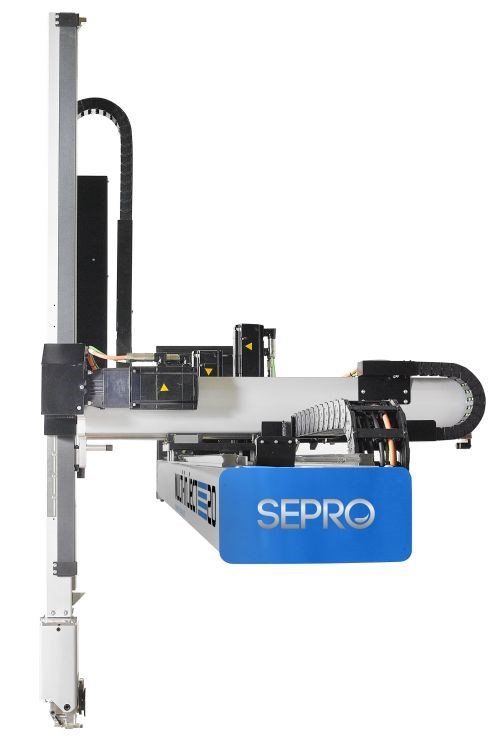How ‘sticky’ is your business?
Medical means less cyclicality and higher margins—those are two broadly agreed upon assumptions about the market—but is there another aspect that keeps processors pushing to enter the space?

On the short list of things medical OEMs dislike, No. 1 would be change—change in materials, change in design, change in process, and yes, change in supplier. You alter anything at all, and you have to deal with No. 2 on the least-liked list: validation. That inertia against any modification once a program is certified gives medical work an appeal beyond its growth prospects and margins (although that pricing advantage may be changing).
“Processors call medical ‘sticky’ business,” explained Paul Rudzinski. “Once you’re in, you get the business for the life of the program.” Rudzinski, regional sales manager for automation supplier Sepro America LLC (Warrendale, Penn.), has a long history with medical molding, including a stint with equipment supplier Milacron (Batavia, Ohio) selling presses into the space and time with healthcare processor MedPlast (Tempe, Ariz.).
In that time he learned how unusual it was for an OEM to change suppliers after a new product has been validated. If a company decided to swap shops midstream, they’d often have the existing processor run out one year’s worth of inventory to give the new processor time and space to re-validate the product and process at their facility. Not exactly a JIT set up. Rudzinski commented on the sector at last week’s Plastec West event at the Anaheim Convention Center.
Sepro diagnoses growth thanks to medical business
Rudzinski joined Sepro approximately one year ago and his presence in California has helped the automation supplier land more of that sticky business for itself. At the show, Jim Healy, VP of sales and marketing for Sepro, noted that the company tripled sales in the western half of the U.S. in 2013 compared to 2012, driven by medical processors in California and automotive molders in Texas. In addition to hiring Rudzinski, Sepro added on rep agencies The Turner Group and Industrial Machine Sales to work the region.
Rudzinski noted that in addition to the beefed up presence, Sepro and the medical molders it serves in the Maquila regions along the Mexican border, have benefitted from the Affordable Care Act (ACA), AKA, Obamacare. In order to avoid the hotly disputed excise tax the ACA places on medical devices, Rudzinski said many OEMs have moved work to Mexico. “Every sub supplier in the U.S. gets hit by the tax,” Rudzinski said, prompting the nearshoring south of the border.
That tax, and other factors, have made costs top-of-mind in the healthcare market, according to several people I spoke with in Anaheim last week. Brian Highley, VP/GM medical device and consumer health at Nypro Healthcare was succinct when asked about trends in the market.
“The biggest trend we see is cost,” Highley said, citing the medical device excise tax and overall competitiveness as drivers. “The biggest issue is cost. It’s incredibly competitive out there. With everything we make, we are cost conscious.”
Related Content
-
Fakuma 2023: Wittmann Battenfeld Expands All-Electric Line, Direct-Current Capabilities
Wittmann Battenfeld will introduce the new EcoPower B8X injection molding machine line and show direct current as an energy source for a concept machine that will power its own robot.
-
Tederic Promotes High Technology, Broader Market Presence
Four cells are running in its booth including a 1,300-ton multimaterial system highlighting its 2K capabilities.
-
U.S. Debut for Slimmed Down Electric Machine
NPE2024: Arburg’s debut of the 310-ton Allrounder 720 E Golden Electric extends the tonnage range of the electric series and marks the first global press premiere outside of Germany.















